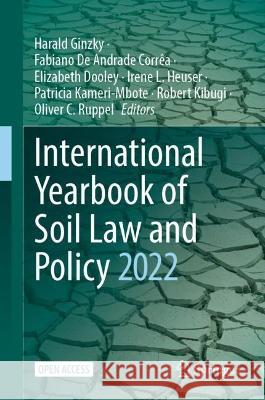International Yearbook of Soil Law and Policy 2022 » książka
topmenu
International Yearbook of Soil Law and Policy 2022
ISBN-13: 9783031406119 / Angielski
International Yearbook of Soil Law and Policy 2022
ISBN-13: 9783031406119 / Angielski
cena 161,36
(netto: 153,68 VAT: 5%)
Najniższa cena z 30 dni: 160,61
(netto: 153,68 VAT: 5%)
Najniższa cena z 30 dni: 160,61
Termin realizacji zamówienia:
ok. 22 dni roboczych.
ok. 22 dni roboczych.
Darmowa dostawa!
Kategorie:
Kategorie BISAC:
Wydawca:
Springer
Seria wydawnicza:
Język:
Angielski
ISBN-13:
9783031406119











